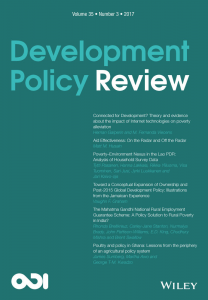No Time for Blind Optimism
The world is facing the most serious health catastrophe since 1918. A global pandemic—one that many medical authorities warned would happen sooner or later—is here. The coronavirus travels quietly, widely, and can have deadly consequences. At this writing, well over 1.5 million people have been infected and close to 90,000 have died. Compare this to the SARS epidemic of 2002-2003 which infected 8,098 people and killed 774 or the 2014 outbreak of the Ebola virus which infected 18,000 people and...




















1475-6781/asset/JSS.gif?v=1&s=377bb8e0c3d0fcf201f301ded7cf610142072c3e)